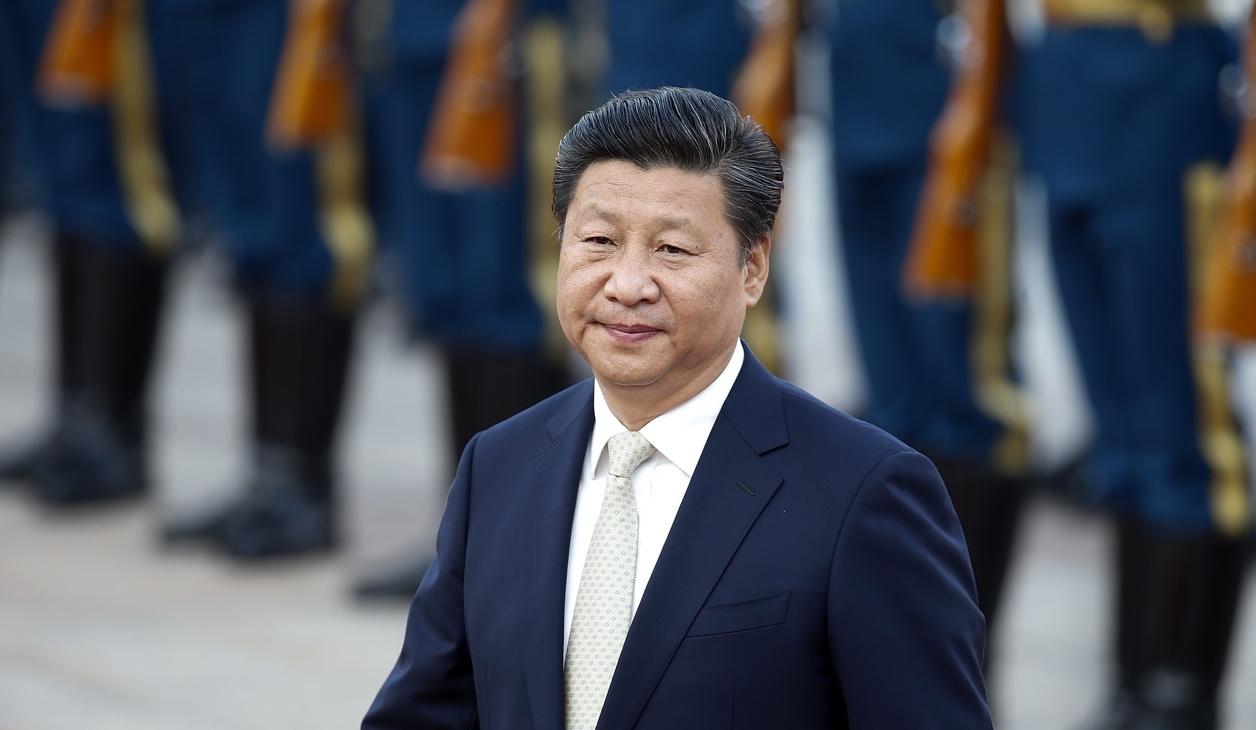Xi Jinping and Pope Francis compete for attention in the United States
Chinese President Xi Jinping outside the Great Hall of the People on Sept. 14, 2015 in Beijing, China.
Editor's note: This is Chatter, our morning rundown of what you need and want to know around the world. Fortunately for us all, you can have Chatter emailed to you every day. Just sign up here!
NEED TO KNOW:
Chinese President Xi Jinping is in the United States. It’s hard to know that though because his visit, which is his first as the leader of China, is overshadowed by another first: the arrival of Pope Francis.
Xi is facing some domestic debacles at home, which have shaken his once implacable hold on power in China. The Chinese economy has been slowing down rather dramatically after many years of boom times. Over the summer the Chinese stock market crashed, rattling the entire world. Nothing the president does to reverse this trend seems to help. In Seattle on Tuesday, Xi said in a speech that his country’s economic slide was “only a problem in the course of progress,” which seemed optimistic.
So Xi needs a win. And there’s probably no better place for him to find one than in the United States, where a slew of disagreements over human rights, cyber security and other big issues provides ample opportunity for the Chinese president to project strength abroad.
US President Barack Obama wants Xi to sign a treaty on cyber warfare. It would be a global first. Obama also wants the Chinese president to address cybersecurity, especially accusations that the Chinese are stealing some $300 billion in intellectual property from US firms, mostly by hacking into their private systems. It’s pretty unlikely that Xi will leave the United States having done either of those things, which will probably play pretty well back in China. And by going to Seattle to meet with American business leaders before traveling to Washington, he is demonstrating how important China is both to the US tech community and its overall economy.
Except, few are paying attention to what Xi is up to on the West Coast. Because on the East Coast, Pope Francis is receiving a hero's welcome. A lavish state reception in Washington, DC is already underway. At this point, Xi’s visit seems like an afterthought.
WANT TO KNOW:
Cambodia is riddled with buried explosives. An estimated 4 to 6 million landmines and unexploded ordnance litter the countryside, forests and riverbeds. They've killed or maimed more than 64,000 people. Cambodia has the highest ratio of landmine amputees per capita in the world. It's a major problem.
It isn’t the only place in the world that has a very dangerous number of active landmines. Syrian refugees are facing the threat of landmines even as they make their way through Europe. But Cambodia has become the world’s laboratory to experiment on the best ways to remove them. Pretty much everything has been tried at this point, including animal help: African giant pouched rats, of all things, have proven themselves to be some of the most effective tools in the search for landmines. It's unclear how happy they are about that distinction.
Now, 3D printers are playing a role in the effort. Humanitarian organizations are printing near-perfect models of the various kinds of landmines that exist in Cambodia, giving technicians in the field the ability to see how the mechanisms work and practice disarming them. The work could go a long way toward removing mines all over the world. Now we only need governments to stop planting them.
STRANGE BUT TRUE:
It doesn’t get much more apocalyptic than this: The Syrian war has forced officials for the first time ever to remove some seeds from a remote “doomsday” vault. The vault, which is embedded into the side of an Arctic mountain, is a fail-safe to protect global food supplies.
The removed seeds, which include wheat and barley, were requested by researchers in the Middle East who are trying to replenish stocks in another — now damaged — vault in the war-ravaged Syrian city of Aleppo.
The Arctic vault was built to safeguard the diversity of global food supplies in the event of something truly cataclysmic, like all-out nuclear war or the outbreak of an unstoppable disease. But in the end, it was the Syrian conflict that prompted the vault to be opened for the first time, which probably says something about how bad the Syrian conflict is.
